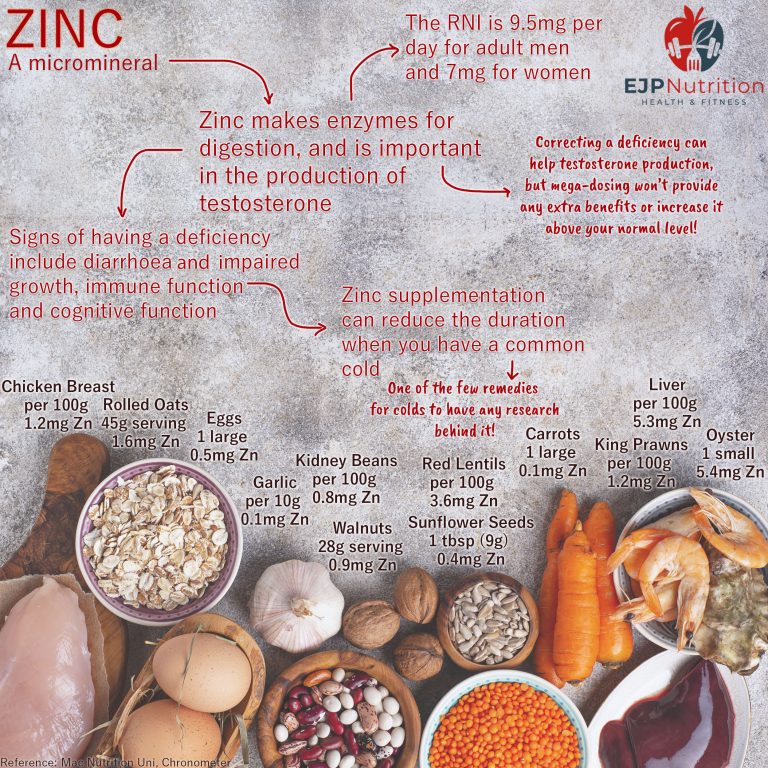Returning to the topic of minerals, another one we require for general health and function is zinc. This is found in a range of foods; some of which pictured on the graphic. Low fat diets are associated with lower intakes of zinc, amongst other micronutrients. In the UK the RNI for adults is 9.5mg per day for men, and 7mg per day for women.
Zinc is important for the production of testosterone in the body. It also makes enzymes for digestion. If you don’t have enough signs of deficiency include diarrhoea, impaired growth, immune function and cognitive function.
For those who train regularly, ZMA may be a supplement you’ve used or come across. It includes zinc, magnesium and vitamin B6. It’s marketed as a key supplement which will help maintain normal testosterone levels, reduce tiredness, and potentially help recovery. However, zinc will only increase testosterone if you are deficient. It won’t boost your levels above their normal range from taking more!
As we enter the season where coughs and colds are plentiful (I’m purposefully not mentioning the *other* virus here, ONLY the common cold), zinc supplementation may reduce the duration of colds. The research is a little mixed, but zinc lozenges seem to have more effect than other tested micronutrient options, such as vitamin C.
It’s not been found to be preventative of colds, although ensuring you aren’t deficient will help to support your immune system. You may be more susceptible to illnesses when your immunity is compromised. Having adequate levels of zinc will support your overall health.
Reference: Mac Nutrition Uni, Kerksick et al 2018, Wang et al 2020, Horvath et al 2000, Koehler et al 2009
(Reposted from Instagram)


